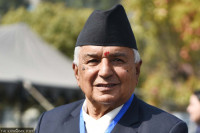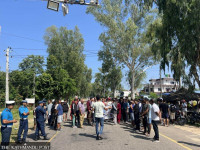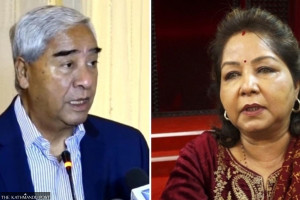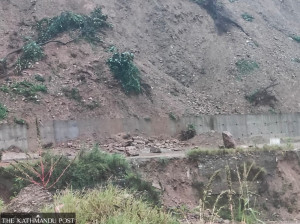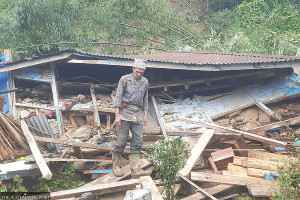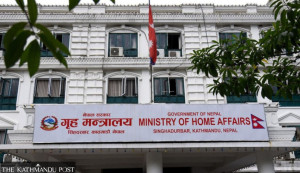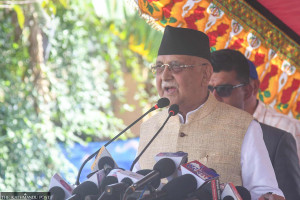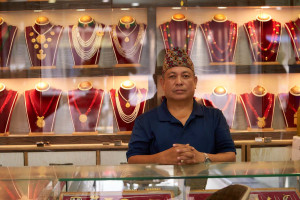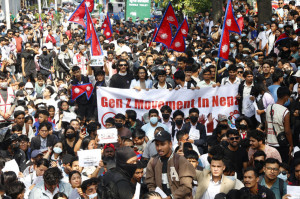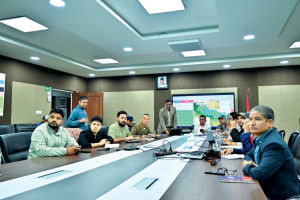National
Karki govt undecided on arrests of Oli, Lekhak as security chiefs continue to advise caution
Prime Minister Sushila Karki urged not to ‘rush into arrests’ ahead of March 5 elections, amid fears action could spark unrest.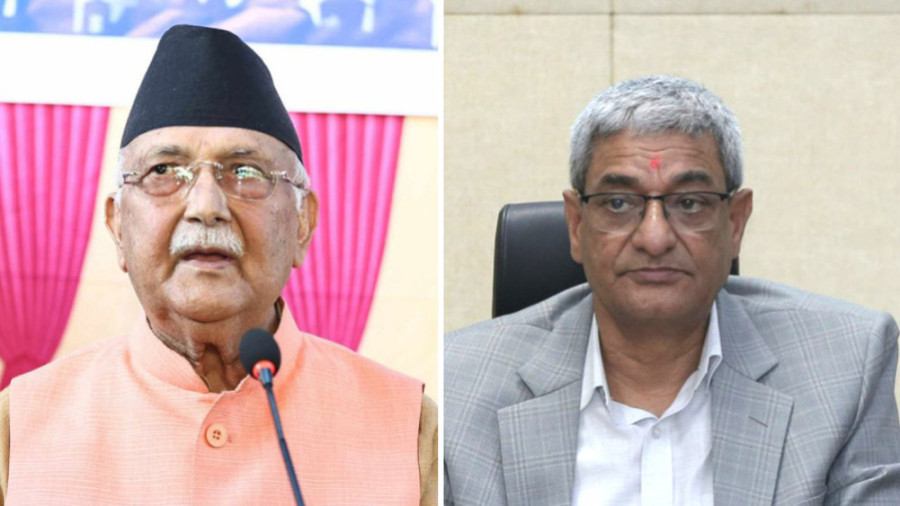
Gaurav Pokharel
The inquiry commission investigating the loss of lives and property during the Gen Z protests on September 8 and 9 has returned a complaint against former prime minister KP Sharma Oli, then home minister Ramesh Lekhak, and others to the police. The move has complicated the case’s progress, with security officials advising the government to act with caution on the high-profile case.
The complaint was returned to the police on the same day Oli dismissed the commission as “fake”. The families of those killed in the protests filed the case at the Kathmandu District Police Range on October 6.
A meeting at Singha Durbar on the same evening, followed by another at Baluwatar on Monday night, saw security chiefs warn that arresting Oli and Lekhak could trigger violent clashes. The government subsequently chose to forward the complaint to the commission rather than take immediate action.
Commission member Bigyan Raj Sharma said the panel, led by former judge Gauri Bahadur Karki, lacked jurisdiction over criminal offences. “The commission’s mandate does not include prosecuting or investigating criminal cases,” Sharma said. “Such cases fall under the authority of the state’s regular law enforcement agencies.”
With the commission returning the case, it remains unclear whether the police will proceed against Oli and Lekhak. Prime Minister Sushila Karki and Home Minister Om Prakash Aryal face pressure to take action, despite security officials’ advice to proceed cautiously.
In a countermove, the UML-aligned student wing, All Nepal National Free Students Union, has filed a counter-complaint against Kathmandu Mayor Balendra Shah and Gen Z activist Sudan Gurung, further raising tensions. Gurung had taken initiative to coordinate with the family members of the deceased and file the case against Oli and Lekhak.
Following a social media campaign under hashtags such as “#ArrestKPOli” and “#ArrestRameshLekhak,” Home Minister Aryal met Inspector General of Police Chandra Kuber Khapung and Armed Police Force IGP Raju Aryal at Singha Durbar on Monday evening. Security officials reportedly warned that rushing arrests could spark confrontations.
Later that night, Minister Aryal, Home Secretary Rameshwar Dangal, and the two IGPs met Prime Minister Karki at Baluwatar. Army Chief Ashok Raj Sigdel and National Investigation Department head Tekendra Karki were also present.
During the five-hour meeting, the prime minister asked whether arrests could be legally justified amid public pressure from protesters and Mayor Shah. “We advised her not to rush into arrests,” an official who was present at the meeting said.
The prime minister is under moral pressure to act, also because she, before becoming the prime minister, had described the protest killings as a “massacre of children”.
Sources said the administration now appears inclined to pursue legal action against Oli and Lekhak. “The complaint will move forward,” two ministers told the Post, adding that the government would act “in line with existing laws and the sentiment of the Gen Z movement.”
“After questions were raised about Sudan Gurung’s involvement, it was initially agreed that the police would receive the complaint from the victim’s family and then forward it to the investigation commission,” an official said. “The next day, the family went to the Bhadrakali-based police range and filed a complaint against Oli, Lekhak, and others for crimes against humanity and sedition.” The police subsequently forwarded the complaint to the commission.
In the meantime, the commission returned the complaint, and the next steps are still under discussion, said Kathmandu Police chief Senior Superintendent of Police Ramesh Thapa. “The matter of prosecution is also linked with the government attorney, so we will consult them and make an appropriate decision,” he told the Post.
Security officials remain wary that arresting top former leaders ahead of the March 5 elections could spark political backlash and security risks. The Nepal Army and Armed Police Force have also warned of attempts to incite communal tensions during this volatile period. “To hold elections, parties’ support is necessary, but currently, their confidence is increasing,” a security official said. “In this situation, where everything is becoming organised, the government needs to act in a way that manages the circumstances.”
The Gen Z uprising, which began on September 8, faced violent suppression on September 8, leaving 21 people dead on the same day and at least 75 over two days, with hundreds more injured. The military later advised Oli to step down, after which he resigned and took shelter at an army barracks. Families of those killed and injured continue to demand legal action against Oli and Lekhak.
Senior advocate Satish Krishna Kharel said the police have the authority to pursue the complaint if they choose, though precedent offers little ground for a criminal case. “It must be first determined whether this is a moral issue or a criminal one,” he said.
A top security official cautioned that moving forward on the case could eventually compel the police also to investigate their own personnel involved in the crackdown. “The complaint also names then Chief District Officer Chhabilal Rijal and officers who followed state orders. Probing them could trigger unrest within the force itself,” he said.
During the protests, police personnel were also targeted. Assistant Sub-Inspector Milan Raya and constables Uttam Thapa and Amrit Gurung were killed by demonstrators. Videos circulated online showed some officers being stripped of their uniforms and some others being chased through rivers.
Weeks after his resignation and airlift evacuation, Oli started sharpening his criticism against the interim government, prompting officials to warn that his recent remarks could escalate tensions.
On Thursday, Home Minister Aryal met again with security chiefs, including the IGPs and Nepali Army representatives, to discuss the issue.
The meeting also discussed remarks by UML leader Mahesh Basnet, while Oli, speaking at a party event in Gundu, mocked the travel ban imposed on him. “Do you think KP Oli runs away out of fear of Sushila Karki?” he said, warning Minister Aryal to “stay calm and composed.”




 14.63°C Kathmandu
14.63°C Kathmandu




